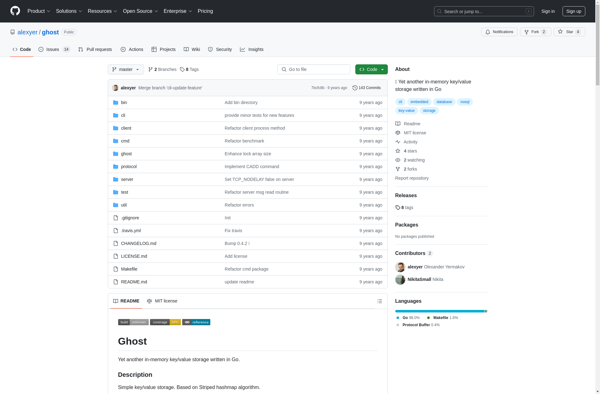LedisDB
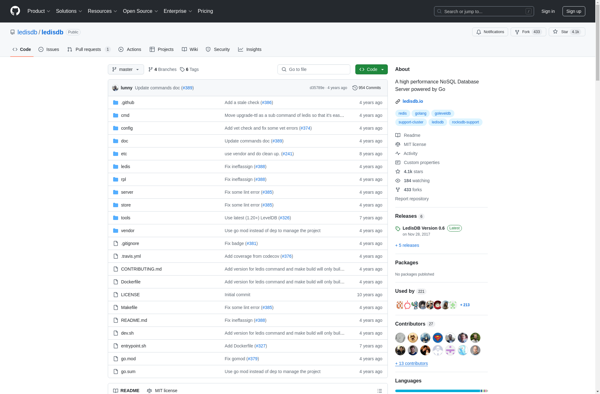
LedisDB: High Performance NoSQL Database
A high-performance NoSQL database offering Redis-compatible interfaces, improved performance, and disk persistence, supporting various data structures such as strings, hashes, lists, sets, and sorted sets.
What is LedisDB?
LedisDB is an open source NoSQL database developed by the Chinese company LedisTech. It provides high-performance, scalable data storage and retrieval for web-scale applications.
LedisDB supports various data structures including strings, hashes, lists, sets and sorted sets, which is very similar to Redis. This allows developers to easily migrate applications from Redis to LedisDB. It aims to be API-compatible with Redis wherever possible.
However, LedisDB also introduces new features of its own. Most significantly, it provides on-disk persistence out of the box unlike Redis which relies on AOF/RDB snapshotting for persistence. This ensures data is safely stored and preserved in the event of failures or downtime.
By storing data on disk rather than main memory, LedisDB can work with very large datasets beyond the system memory capacity. At the same time, it uses memory caching, indexes and multithreading to deliver high performance that matches or exceeds Redis.
LedisDB is written in the C programming language for maximum performance. It supports replication for higher availability. Community and enterprise editions are available under the Apache license.
LedisDB Features
Features
- Key-value database
- Supports multiple data structures like strings, hashes, lists, sets and sorted sets
- Written in C for high performance
- Disk persistence
- Replication for high availability
- Transactions support
- Redis-compatible interfaces
Pricing
- Open Source
Pros
Cons
Official Links
Reviews & Ratings
Login to ReviewThe Best LedisDB Alternatives
Top Development and Databases and other similar apps like LedisDB
Here are some alternatives to LedisDB:
Suggest an alternative ❐Redis
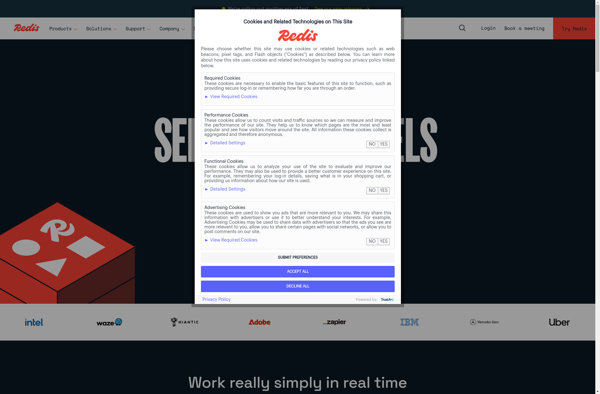
Bluzelle Decentralized DB
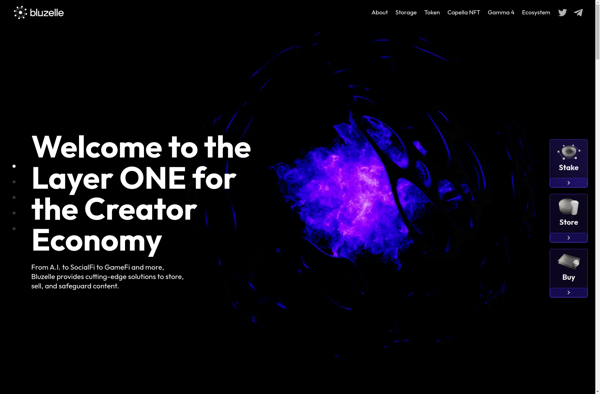
KeyDB
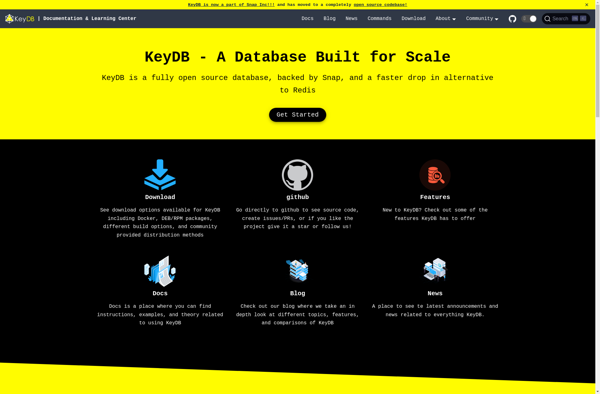
Ghost DB
